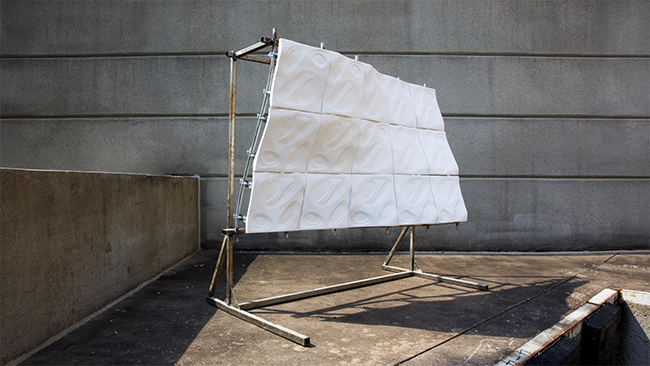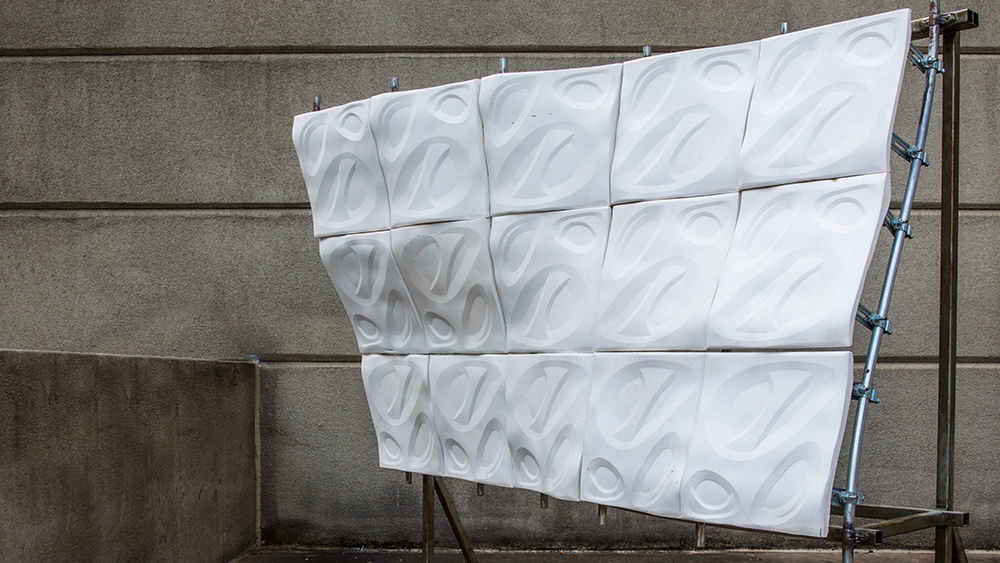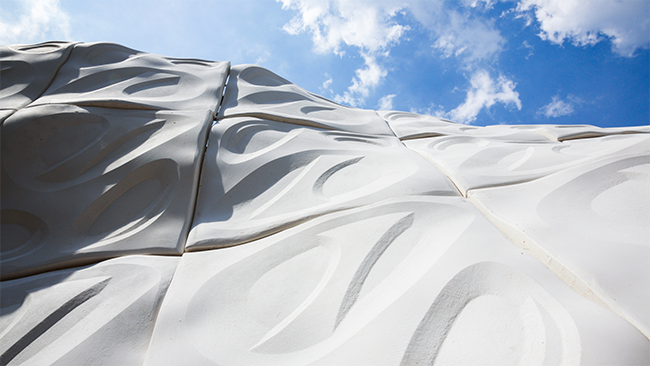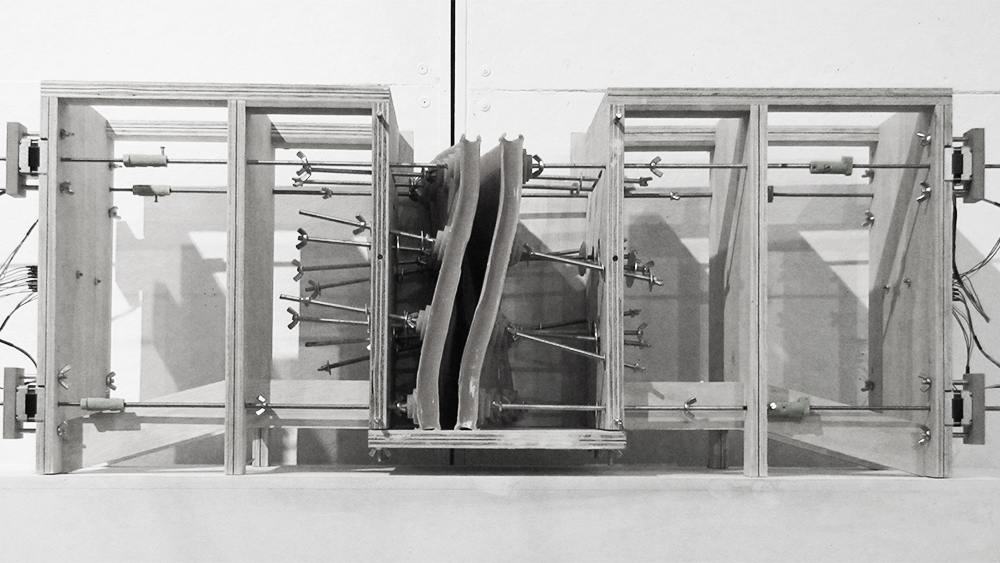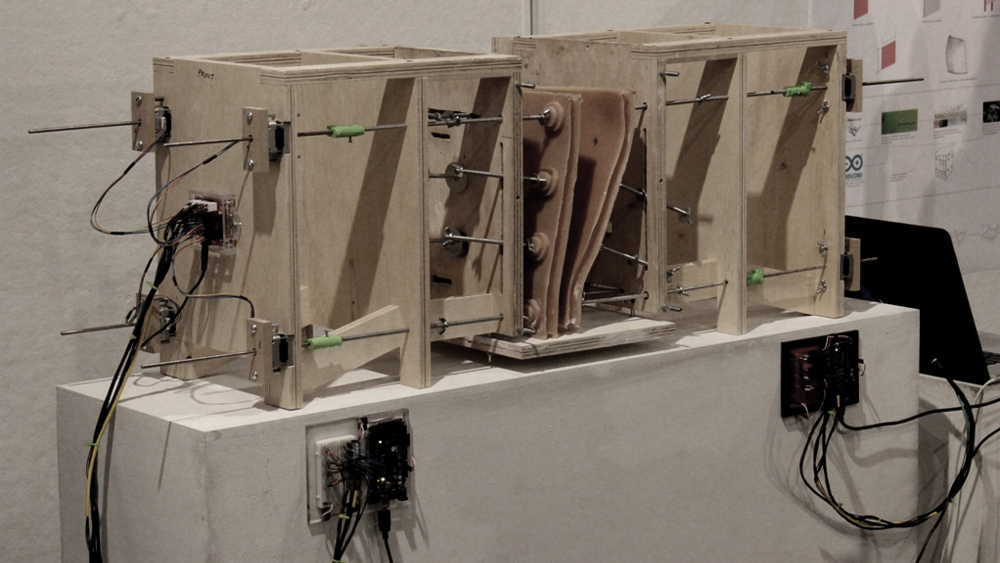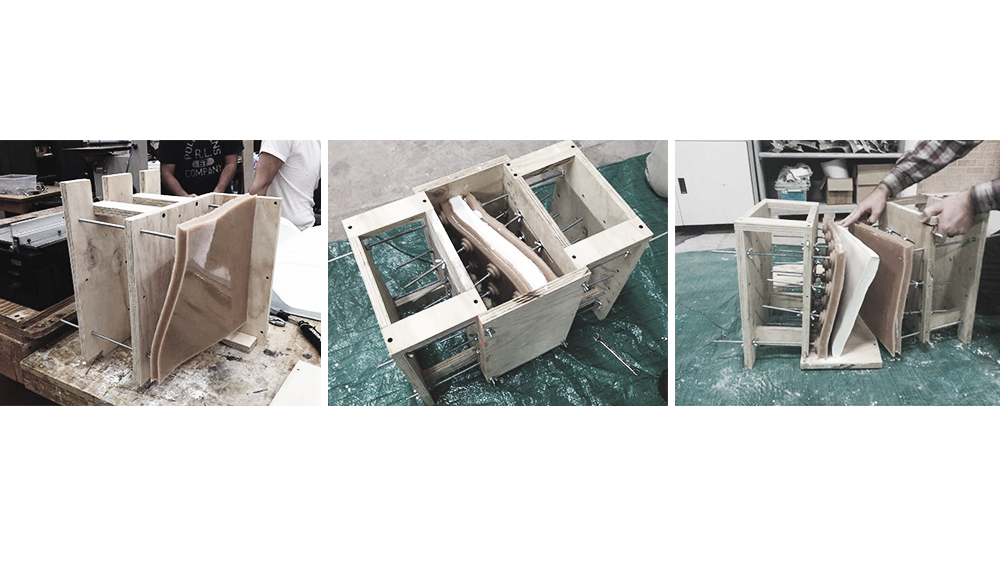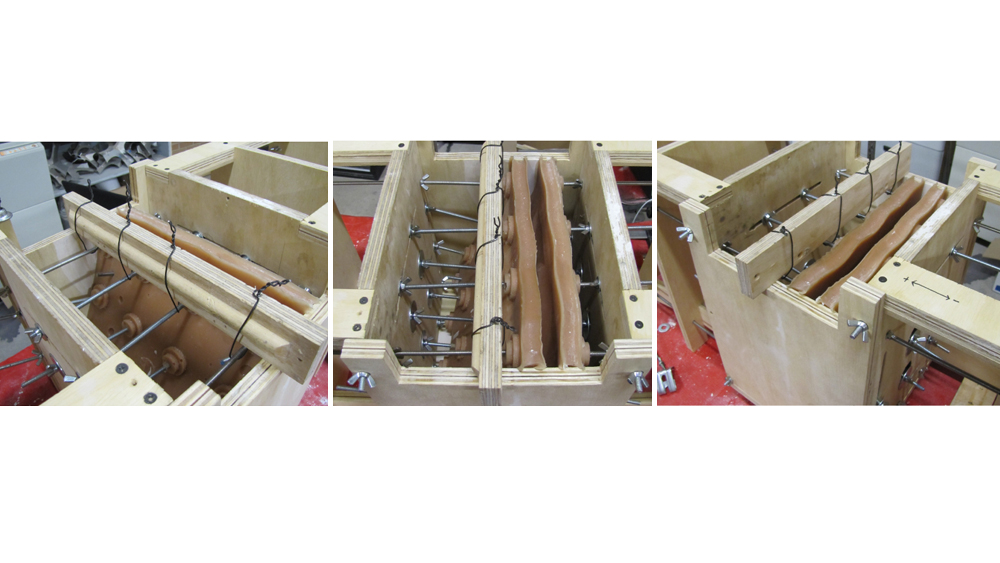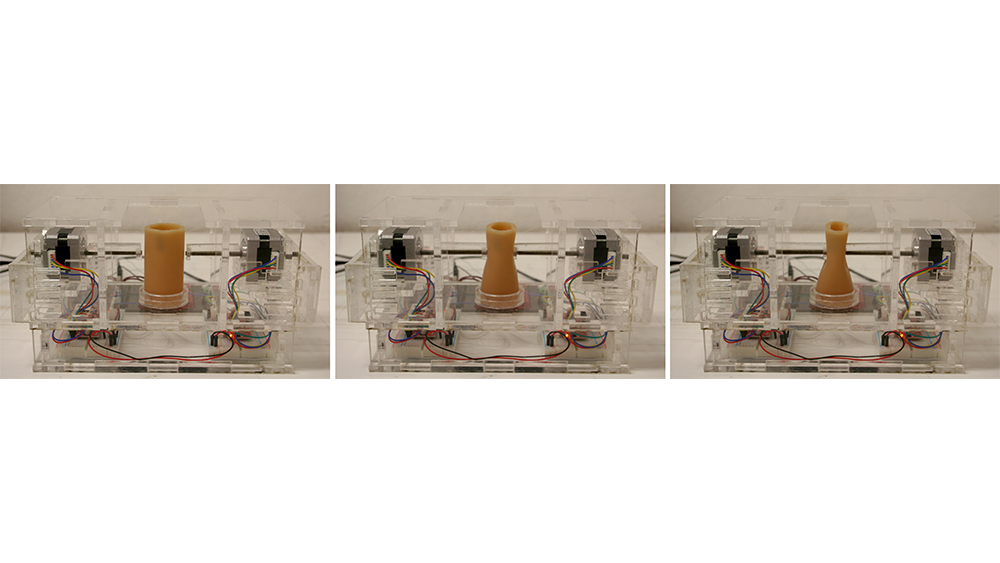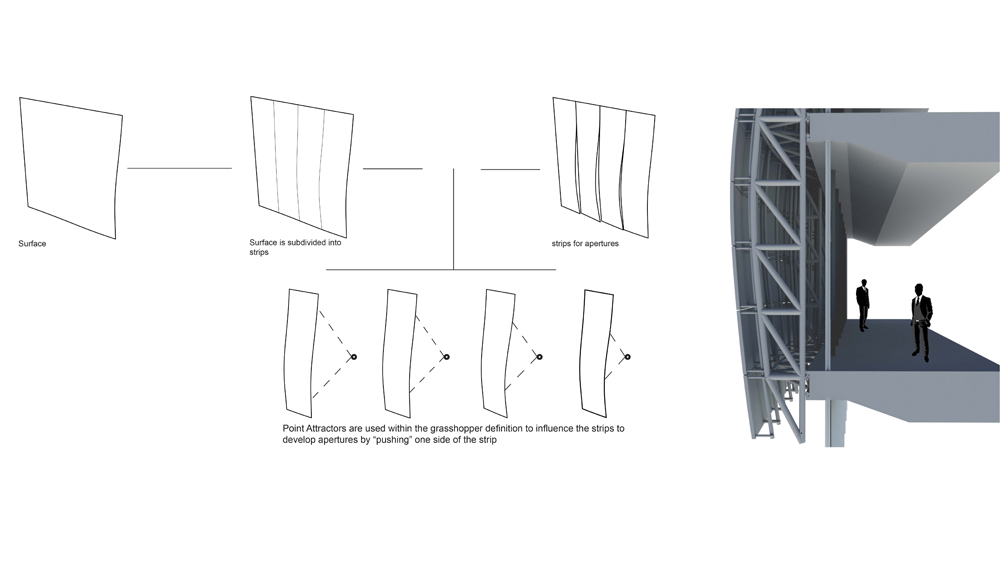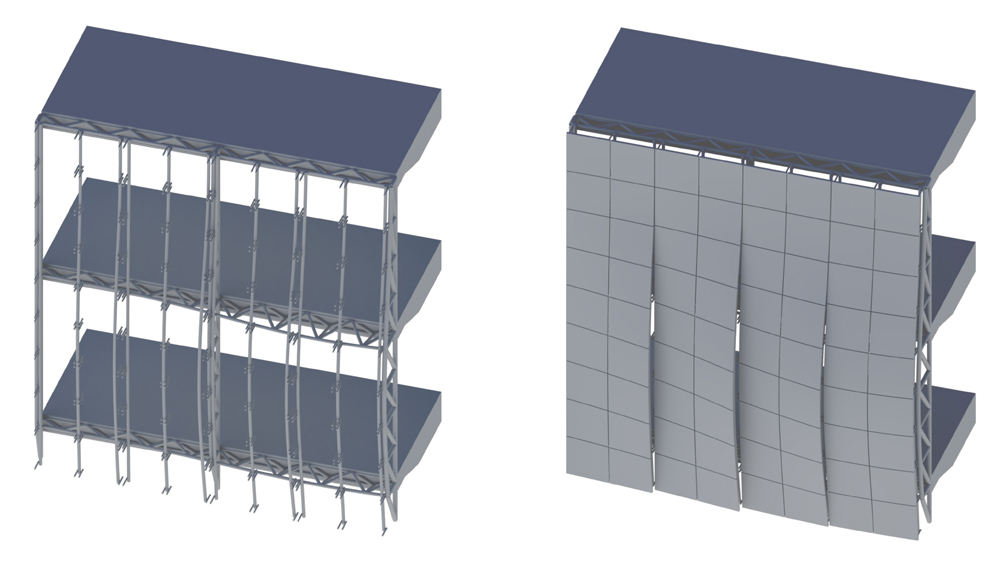RECONFIGURABLE SURFACES I
While significant advancement has taken place within the precast and composite industry related to the production of molds for non Euclidean panel geometry, much of that process still relies on practices of milling one-off formwork that is neither sustainable nor at times practical for jobs require a large number of heterogeneous parts. This research examines the viability of a digitally reconfigurable surface(s) allowing for a range of geometric outcomes from a single formwork. Both applied and empirical research methodology are utilized to create digital and physical testing scenarios. Initial tests produce a range of physical samples combining traditional urethane mold making techniques with an adjustable stepper motor framework to provide a spectrum of panel geometries. Subsequent testing combines 3D printed surfaces that embed intelligent material and spatial responsiveness casting surface. The current state of this ongoing research is a full-scale digitally reconfigurable formwork controlled by a computer model capable of producing a wide range of geometric outcomes and a full-scale panel prototype. The potential benefit to the precast or composite industry would be to reduce cost and production time while providing geometric flexibility not currently present in the traditional casting process. Digitally reconfigurable surfaces would effectively place the precast and composite panel production industry in a position to cost effectively implement mass customization into emerging design standards.
Team Members
Nathan Barnes
Chris Chrysler
Austin Ede
Cord Read
Industry Partners
UTARI: University of Texas at Arlington Research Institute
PCI Foundation
Future Cities Lab
Related Projects
Reconfigurable Surfaces II

